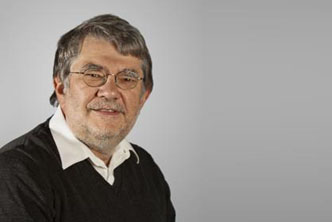E-Energy – Smart Energy made in Germany: final report submitted
B.A.U.M. presents the results of the multiyear research programme E-Energy to the German federal government
1 November 2013, Berlin: As the consortium lead of the accompanying research, B.A.U.M. submits the E-Energy final report to the German Federal Ministry for Economic Affairs and Energy for approbation. B.A.U.M. was in charge of the coordination implementing the final report, which has more than one thousand pages. The final report evaluates the results of the six pilot regions, which involved more than 4.000 households.

More than 60 million Euros for the demonstration of smart grid technologies
For four years the German Federal Ministry for Economic Affairs and Energy and the Federal Ministry for the Environment, Nature Conservation, Building and Nuclear Safety funded six pilot regions with more than 60 million Euros. The aim of the pilot regions was to demonstrate smart grid technologies and to develop virtual marketplaces at the distribution grid level in order to research their possible contribution to the energy transition (decentralisation, fluctuating generation, security of supply).
- Smart grid technologies can contribute to the integration of fluctuating renewable energy sources and, thus to the secure and affordable supply of energy. Using ICT for bidirectional communication at low and medium voltage levels allows a quick and grid node oriented as well as, if required, semi-automatic balance between energy generation and consumption. Therefore, the use of smart grid technology goes hand in hand with the local need of grid expansion, which differs from region to region, and may even reduces the need of expansion.
- The convergence of the electricity grid with other power grids (heat, gas, mobility) opens up further balancing potential (power-to-heat, power-to-gas, long-term storage).
- The technical functionality of the smart grid concept at the distribution level was proven and open questions regarding standardisation, security and technology-readiness were identified and mainly answered.
- Existing flexibility potentials and the interaction between consumers, producers, prosumers, aggregators and network operators cannot be translated to viable business models due to unfavourable regulatory and economic framework conditions.
- In order to stimulate end consumers adapting their energy use to a ‘smart’ energy behaviour, significant communication and education efforts are needed and data security must be ensured. Additionally, sufficient economic incentives must be offered, which cannot be comprehensively and economically covered only by the implementation of energy saving measures or load shifting.
e-energy website:
www.e-energy.de









![[Translate to English:] [Translate to English:]](/fileadmin/_processed_/f/f/csm_navi_netzwerk_b47f15017f.jpg)

![[Translate to English:] [Translate to English:]](/fileadmin/_processed_/8/c/csm_navi_karriere_d91a19271d.jpg)



![[Translate to English:] [Translate to English:]](/fileadmin/_processed_/4/e/csm_navi_newsletter2_ed6bee5c1a.jpg)

 News
News
 LinkedIn
LinkedIn

